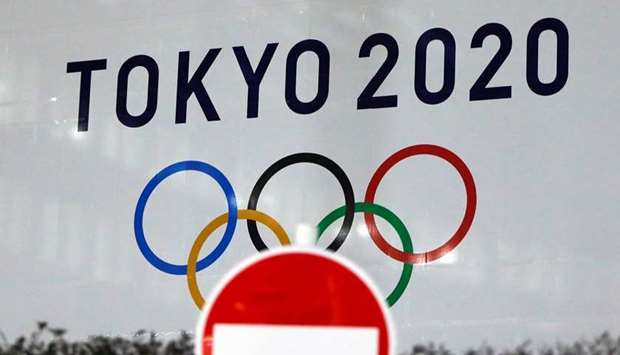Japan has decided to stage this summer's Tokyo Olympics and Paralympics without overseas spectators due to public concern about Covid-19, two government sources with knowledge of the matter told Reuters on Wednesday.
The Olympics, postponed by a year because of the pandemic, are scheduled for July 23 to Aug. 8 and the Paralympics from Aug. 24 to Sept. 5. Prime Minister Yoshihide Suga has said a decision on spectators would be made by the end of March.
The government has concluded that welcoming fans from abroad would not be possible given public concern about the coronavirus and the detection of more contagious variants in many countries, the people said, declining to be identified because the information is not public.
Kyodo News, which reported the decision on Tuesday, said the opening ceremony of the torch relay on March 25 would also take place without spectators.
‘The organising committee has decided it is essential to hold the ceremony in the northeastern prefecture of Fukushima behind closed doors, only permitting participants and invitees to take part in the event, to avoid large crowds forming amid the pandemic,’ Kyodo said, quoting the officials.
The Tokyo organising committee said a decision would be made based on ‘factors including the state of infections in Japan and other countries, possible epidemic-prevention measures, and expert scientific advice.’
Tokyo 2020 President Seiko Hashimoto has said she wants a decision made on before the start of the torch relay on whether to allow overseas spectators.
'TRADE-OFF'
Sebastian Coe, the man behind the 2012 London Olympics which enjoyed sell-out crowds, and now President of World Athletics, said the goal has always been to ensure ‘the best possible games for the athletes and having full stadiums of passionate people’, preferably with a ‘good global presence’.
‘With all the work being done around vaccinations and the huge sacrifices large parts of the world have made over the last year, I would hope that fans (international and domestic) will be able to attend (the Tokyo Olympics), of course it would be better,’ he told Reuters.
‘However, if local communities are concerned, then athletes will accept that and it is a trade-off they are prepared for.’
Figures released in December had projected ticket sales would contribute $800 million for the Tokyo organising committee, or about 12% of its budget. Local ticket sales have typically accounted for 70-80% of ticket sales at past Olympics.
In the last Olympic Games, the 2018 Winter Games in Pyeongchang, South Korea, local fans accounted for 80% of all ticket sales, with international fans buying 20%.
Most Japanese people do not want international visitors to attend the Games amid fears that a large influx could spark a resurgence of coronavirus infections, a Yomiuri newspaper poll showed this week.
The survey showed 77% of respondents were against allowing foreign fans to attend, versus 18% in favour.
Some 48% said they were against allowing any spectators into venues and 45% were in favour.
While coronavirus infection numbers have been relatively low in Japan compared with the United States and many European countries, the country has been hit hard by the third wave of the pandemic and Tokyo remains under a state of emergency.
Japan has recorded more than 441,200 Covid-19 cases since the start of the pandemic and more than 8,300 deaths.

